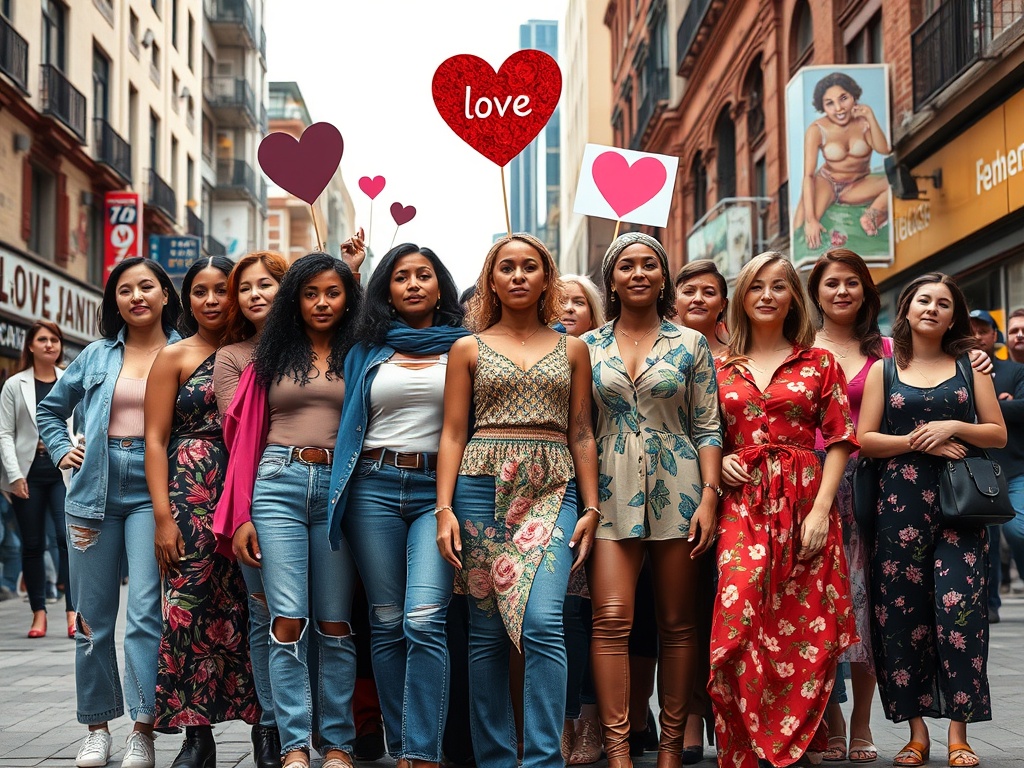Reflections on Love and Feminism

A few years ago, I embarked on a memorable trip to Italy with my then-boyfriend, James. One evening, as we indulged in a delicious plate of frutti di mare at a charming seaside restaurant, I found myself engaging in a lively conversation with the waiter in Italian. While I was relishing the moment, James sat silently, glancing at his phone, clearly feeling out of place. Later, back in our hotel room, he expressed his frustration, saying I had ignored him. By speaking a language he didn’t understand, I had unintentionally made him feel small.
I could understand his perspective. I had been so absorbed in my own enjoyment that I hadn’t considered how he might be feeling. In jest, I mentioned that as the one fluent in Italian, I would handle the ordering—after all, he wouldn’t know what osso buco meant. In that moment, I realized I was showing off.
This wasn’t an isolated incident. Throughout my life, I have often taken the lead, determined to get the last word, all while being too engrossed in books to master the finer points of charm. I genuinely believe that the reason I find myself booking a table for one at the age of 63, rather than sharing my life with a significant other, is because, like many women of my generation, I feel that feminism has inadvertently complicated my romantic pursuits. Instead of empowering us, the ideals of the second-wave feminists led many of us to perceive marriage and domesticity as burdens to be avoided, seeing men as competitors rather than partners.
Despite enjoying a successful career as a writer and broadcaster, I have never married or had children, and my longest relationship lasted eight years. This is a source of regret for me; I had always envisioned a future filled with love, a partner, and perhaps two wonderful children in a cozy countryside home. I have come to realize that I have paid a hefty price for my so-called liberation.
At 17, while attending Godolphin and Latymer, one of Britain’s most prestigious academic institutions, I was introduced to the Women’s Liberation movement. It brought with it a sense of hope and excitement. We spent our lunch breaks absorbing the feminist ideologies of Germaine Greer and Betty Friedan, who passionately urged us to “act like men,” as they burnt their bras and criticized traditional roles of housework and family life.
Growing Up Feminist
By the time I turned 25, armed with a degree in French and Italian, I was a bright, confident feminist eager to showcase my intellectual prowess and determined never to let a man have the last word. I challenged myself with challenging literature, including Nietzsche, and my bedside table was always piled high with substantial, thought-provoking books. Initially, men were drawn to my wit and intelligence. They would compliment me, saying, “You’re such a breath of fresh air,” or “I love talking to you.” I was the woman who stimulated their minds.
However, as time went on, my assertiveness became overwhelming. One man remarked, “You’ll never win an argument against Kate,” as he observed me outsmart yet another potential suitor. The unspoken message was clear: “Don’t even try.”
Men have referred to me as “intimidating,” “scary,” and “opinionated.” I now recognize that in my quest to prove I was their intellectual equal—or even superior—I treated every interaction with a man as a competition. When a date presented me with a bouquet of flowers, instead of accepting the gesture graciously, I would respond harshly. I remember rebuffing one hapless suitor with, “Can’t you buy me some nice olive oil or balsamic vinegar?” His thoughtful gesture wilted under my critical gaze.
I placed immense importance on finding a “strong man” who could match me, forgetting that men are individuals with feelings. In my pursuit of strength, I neglected my own emotions and concealed my vulnerability. I realize now that I yearned for love but was too afraid to expose my softer side. My sharp intellect became a shield, protecting my tender heart from further rejection.
- Another significant regret is my history of one-night stands from my younger years. I distinctly remember feeling pressured to say yes to men I met at parties or dates, even when I wasn’t truly comfortable. There was a persistent disconnect, especially the morning after, as I lay in bed waiting for a sign of affection.
- More often than not, the man would be singing a triumphant tune in the shower, relishing his conquest while I felt empty and used.
My generation of women was encouraged to “have sex like a man,” which often meant embracing casual encounters. Unfortunately, this approach backfired for many of us. Fast forward to today, and there’s a growing recognition that women may experience sex differently than men, and that casual encounters can carry hidden emotional risks.
In her recent book, A New Guide to Sex in the 21st Century: The Young Adult Adaptation, Louise Perry explores the negative impacts of the sexual revolution on women, highlighting the unintended consequences of casual sex, dating apps, and the normalization of pornography. While contraception has reduced the risk of unwanted pregnancies, she warns about the increased vulnerability to diseases and the potential for violence in a culture where “premarital sex is the norm.”
Although I don’t advocate a complete return to the restrictive norms of the past, I can’t help but wonder if, by refusing to show any chinks in my intellectual armor, I am the one who has missed out.
While I will never be a giggly man-pleaser, nor do I intend to play second fiddle to anyone, I have come to realize that the confident signals I’ve projected over the years have often contradicted my internal struggles. I’ve learned the value of stepping back and allowing others to take the lead. This doesn’t mean dumbing myself down or becoming a passive partner; rather, it involves dialing back my intensity and allowing space for others to shine.
So, here I am, with an open diary and an invitation to explore new connections. I dare you to take the leap.




